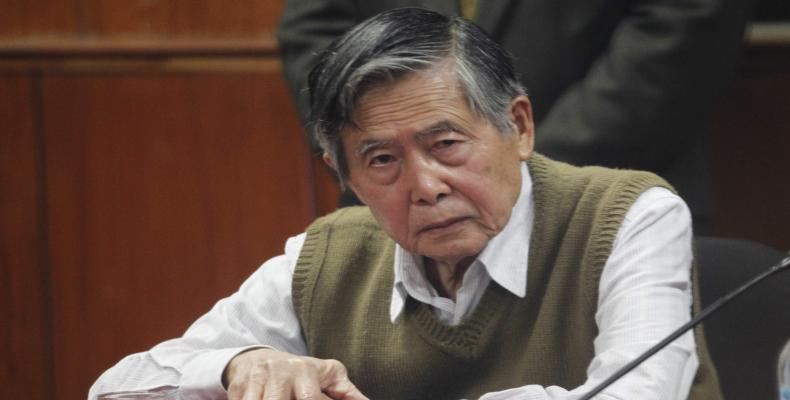Lima, May 4 (RHC-teleSUR)-- Peru's Constitutional Tribunal has rejected former dictator Alberto Fujimori's habeas corpus petition to cancel his sentence for crimes against humanity, with six out of the seven judges from the highest court ruling against the appeal on Tuesday.
Fujimori was sentenced to 25 years in jail for ordering massacres in the Barrios Altos neighborhood of Lima and La Cantuta University. Those killed included innocent civilians, students and even an 8-year-old child.
The appeal to have the sentence thrown out was presented by Fujimori’s lawyer, William Castillo, who hoped to free the former head of state, who is serving his sentence in a unique prison located at the headquarters of the Special Operations Office of the National Police. The defense argued that Fujimori should go through a new trial because his sentence for crimes against humanity was not included in the original prosecutors request, and that Judge Cesar San Martin was allegedly prejudiced against Fujimori.
The decision by the Constitutional Tribunal comes two months before the runoff presidential election between Fujimori’s daughter Keiko and Pedro Pablo Kuczynski. Controversy over the issue of pardoning her father has followed Keiko Fujimori throughout her political career. In fact, until 2011, one of the main goals of her party's presidential campaigns was to use the executive pardon to free Alberto Fujimori. Recently, the matter resurfaced because after the first round of eletions, top party members claimed Alberto had to be freed and that the only reason Keiko is leading in the polls is because of her father’s legacy.
However, many Peruvians reject Fujimorismo and do not want the former dictator to be pardoned. Polls show that 50 percent of people claim they would not vote for Keiko Fujimori under any circumstances. In response, Keiko Fujimori has claimed she will not use her presidential powers to help her father. She has also publicly rejected some of her father's policies as “errors.”
Nevertheless, local human rights organizations, such as the National Coordination for Human Rights, argue the fact that she calls the actions of her father “errors” and not “crimes” shows she is not committed to taking a different political stance to her father.


